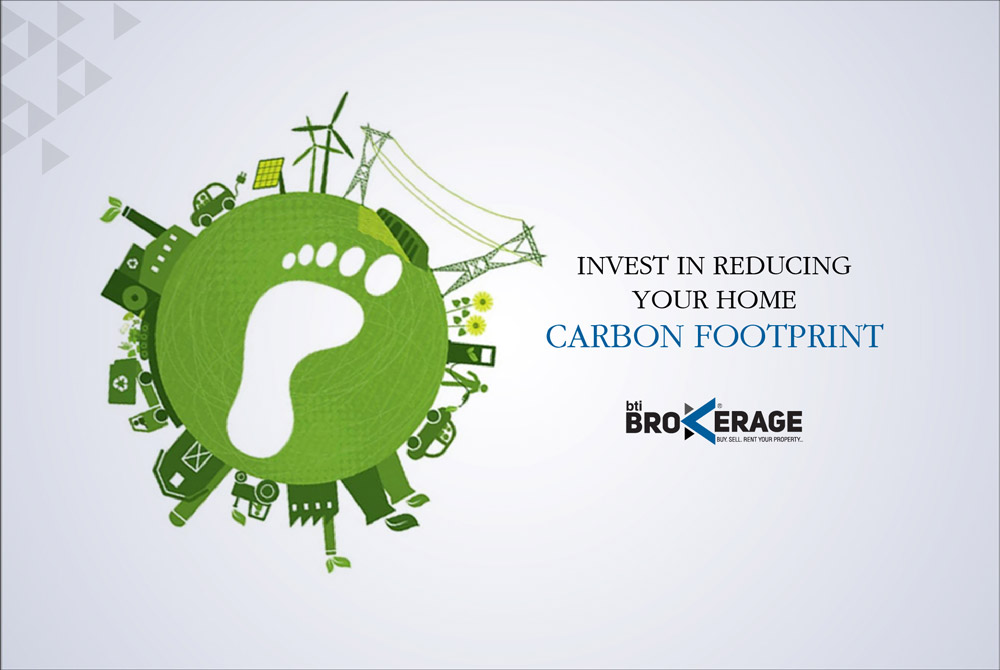The Earth is home to all life, and it is more important now than ever to truly reflect on this notion, as cities all over the world are responsible for 70% of global carbon emissions. This World Habitat Day, in line with the theme of ‘accelerating urban action for a carbon-free world,’ citizens in particular should work together to reduce their own carbon footprint, starting from individual levels. Small changes together could lead to a bigger impact! What better place to start saving the planet than your own home? Here are a few tips to get you started. Trust us when we say that these modifications will also add more value to your home when you are selling or renting it.
Emphasize Renewability
While our government has made the use of solar panels mandatory for every home, there are still some homes without it. Generally older homes do not have solar panels installed, and if you happen to own such a home you should make space to install them. Solar panels will not only help in reducing your electricity bill, it also uses none of the Earth’s fossil fuels and does not cause any greenhouse gas emission. Cheap, efficient, and benefitting long-term, solar panels are renewable sources of energy that help you reduce its carbon footprint. Stay away from single-use plastics too, because they have non-renewability and non-reusability written all over. Instead opt for materials from sustainable sources.
Ensure Greener Construction
Certain areas of the home can be insulated with materials that allow your home to retain heat in winters and keep it cool during the summers. This could be further enhanced with interior and exterior white paint. If you are planning on constructing a new home or industrial building, you should absolutely go for eco-friendly building products such as concrete hollow blocks and concrete bricks. Since these green building products are machine-manufactured, the carbon emission is negligible. Using these materials also reduces water consumption during construction, and saves your time and money.
Enhance Energy Efficiency
Nowadays, the use of energy-efficient lights and appliances with a higher energy-star rating are more preferred because they greatly reduce electricity bills. They also do not emit carbon derivatives. More importantly, unplug any device that you are not using. Also, try to reduce the use of air conditioners since they are hugely responsible for carbon emissions. Smart home features can immensely help you in this regard. From your smartphone you can remotely control appliances, devices, and connections that need to be turned off when you are not around. Some home automation features can detect gas leaks or water leaks, which means once you are notified you can prevent danger and conserve both water and gas. As a bonus, these features increase your home security and price.
Conserve, Reuse, Recycle
Make it a habit to reduce water consumption as much as possible. Boiling water, cooking and delivering water to our homes is an energy-intensive process, which can be simplified if everyone tries to conserve water. Turn off the tap when not in use. For cooking and drinking you could install electric water filters instead of boiling water. Make every small attempt to conserve paper as well. Go digital always, and try to get things done without printing as well. While paper comes from trees, a sustainable source, it is still wiser to avoid paper to reduce our carbon footprint, so that trees can flourish everywhere. Any waste, whether it is paper or water or even organic materials can be reused in different aspects. Reuse plastic containers as well.
Change Your Lifestyle
This is the hardest thing to do. Turning your life around for a carbon-free home might sound impossible but you can get close to it! Instead of cars, walk or cycle to work or share public transport. Rickshaws and CNGs are far greener alternatives than car or bike-ride sharing services. Opt for a healthier diet with leafy vegetables and fruits instead of meat and dairy products, whose production releases methane, a notorious greenhouse gas. Compost waste food and greens for your garden. Landscaping your home with greenery will not only add a refreshing look to your home, it will also add more value.
Remember that your choices and actions will help shape a greener future, where we envision that the Earth will be a safer and carbon-free habitat for all life. If you start from your home and take lead, everyone else will follow. With adequate steps taken to reduce your home carbon emission, you could sell or rent your home at a much better price and also inspire the new residents to reduce their carbon footprint as well.




